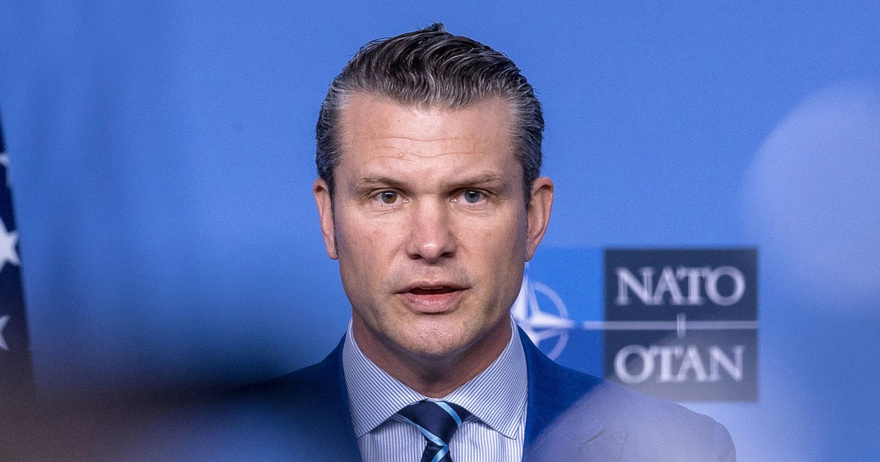In recent days, Trump has upended the prior U.S. position by falsely calling Ukraine’s President Volodymyr Zelenskyy a “dictator” and blaming Ukraine for Russia’s invasion.
Two Trump administration officials publicly declined to characterize Russia as the provocateur in its war against Ukraine, despite the war having begun when Russia launched a full-scale invasion of Ukraine in 2022.
Asked during an interview with “Fox News Sunday” host Shannon Bream whether it was fair to say Russia attacked Ukraine unprovoked three years ago tomorrow, Defense Secretary Pete Hegseth said it was “fair to say it’s a very complicated situation.”
The comments come after President Donald Trump upended the prior U.S. position on Ukraine by falsely calling Ukraine’s President Volodymyr Zelenskyy a “dictator” and laying blame on Ukraine for Russia’s invasion, despite Russia having launched an invasion of Ukraine in 2022 after Russia’s President Vladimir Putin advanced false information about the history and governance of Eastern Europe.
Earlier in the Fox News interview, Hegseth said he did not “need to get into the characterization of — we know who invaded who. We understand the stakes of this game.”
When pressed on why some have expressed hesitance in stating who was responsible for the start of the war, Hegseth responded by asking whether “finger-pointing and pearl-clutching” would make peace more likely.
“Standing here and saying, ‘You’re good, you’re bad; you’re a dictator, you’re not a dictator; you invaded, you didn’t.’ It’s not useful. It’s not productive,” said Hegseth.
“And so President Trump isn’t getting drawn into that in unnecessary ways, and as a result, we’re closer to peace today than ever before,” Hegseth added. “And I’ve been privy to these conversations. Great progress is being made.”
Top Trump administration officials, including Middle East special envoy Steve Witkoff, have traveled to Saudi Arabia in recent days to hold talks with Russian officials.
Witkoff said in a CNN interview Sunday that the war in Ukraine, “irrespective of who started it, needs to end.” He then appeared to defend Russia’s perspective by arguing that the war was not necessarily provoked by Russia.
“The war didn’t need to happen. It was provoked,” he added later in his answer. “It doesn’t necessarily mean it was provoked by the Russians. There were all kinds of conversations back then about Ukraine joining NATO. The president has spoken about this — that didn’t need to happen. It basically became a threat to the Russians, and so we have to deal with that fact.”
In recent days, Trump has doubled down on criticism of Zelenskyy, a U.S. ally, while refraining from similarly criticizing Putin, a U.S. adversary.
Last week, Trump dodged a question from a reporter who asked whether Trump thought that Putin too was a dictator.
“I think that President Putin and President Zelenskyy are going to have to get together, because you know what? We want to stop killing millions of people,” Trump responded.
The White House and the Defense Department didn’t immediately respond to a request for comment.
